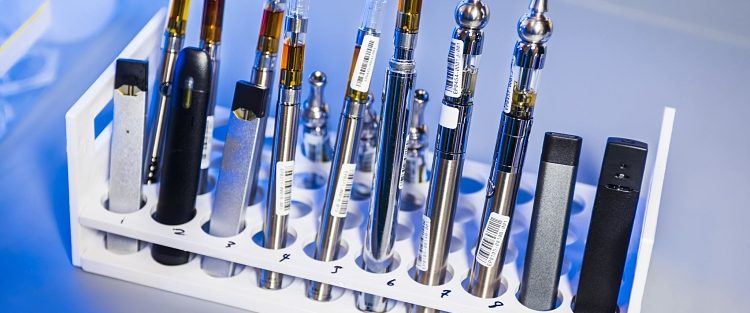There are several hemp-derived cannabinoids that have made a name for themselves, including delta-8 THC, THC-O, and delta-10 THC. However, few have caused confusion like HHC.
Looking up HHC brings a slew of contradictory information. There isn’t a clear consensus on whether it’s legal, if it’s safe, or even if it’s natural.
HHC is very new to the market, and a very small number of retailers have begun to sell it. It is mainly being sold and consumed through vape carts.
“HHC is one of our fastest-growing products. That’s due to regulations that have banned delta-8, but people are buying it in states where they can buy delta-8, too.”
Liam Burns, Founder and CEO of Bearly Legal Hemp
Many state and federal agencies are banning delta-8, the most popular hemp-derived cannabinoid, but HHC isn’t a THC compound at all. This could offer some reprise from the cannabinoid banning that’s happening right now. There are rumors that it could elude drug tests, but there is no sound evidence of that yet.
What is HHC?
Although HHC is new to the public market, it was created all the way back in 1944 by the American chemist Roger Adams. He created HCC by adding hydrogen molecules to delta-9 THC.
He was the first person to convert THC to hexahydrocannabinol (HHC) through hydrogenation.

Although Adams created HHC from conventional cannabis-derived THC, many current chemists are using hemp to create HHC.
First, the chemists extract CBD from raw hemp. It’s then distilled and isolated in powder form. From there, a secret and proprietary process takes place inside a chemical reactor.
How Does HHC Affect its Users?
In other words, HHC mimics the effects of THC, but on a less potent level.
When it comes to the effects of HHC, Liam Burns of Bearly Legal is a huge fan.
“Personally, with HHC, I feel energetic,” he said. “I go to the gym. I’m sharp, my brain’s working properly. I typically have back and shoulder pain, but I have no pain when I’m on it.”
Others have reported that it tastes like plastic but also offers a gentle and cerebral high with some slight pain-relieving abilities.
Is HHC Safe to Consume?
As of right now, there is little to no research on the immediate or long-term effects of HHC use.
HHC isn’t subjected to cannabis regulations in legal adult-use states. As a result, HHC manufacturers and retailers are not required to test their products. Some retailers choose to undergo testing, but it’s under their own discretion and not required by law.
The reported side effects are very similar to THC. They include feelings of euphoria and relaxation, changes in auditory, visual, and pain perception, as well as cognition. In addition, it’s known to cause an altered heart rate and body temperature.
Is HHC Legal?
Retailers argue that HHC is “non-synthetic” and thus a “perfectly federally legal hemp extraction.” Other retailers agree.

However, many experts remain skeptical. James Stephens, the cannabinoids scientist at Creo, believes HHC is subject to the Federal Analogue Act. The law states that any substance analogous to a Schedule I drug also qualifies as a Schedule I drug. Since THC remains illegal at the federal level, HHC would fall under the same umbrella.
Stephens also believes that HHC is similar to the synthetic drugs K2 and Spice, which are also known to mimic THC. K2 and Spice are also classified as Schedule 1 drugs.
For the moment, it remains a gray area.
Hemp is legal nationwide, and cannabis is not. HHC falls somewhere between the two substances. Until then, weigh the pros and cons and consume at your own discretion.
More Content
THE RELATIONSHIP BETWEEN BACKWOODS AND HIP-HOP
TERPENES FOR ANXIETY: 3 TERPS IN CANNABIS WITH STRESS-RELIEVING PROPERTIES
RAPPER WEED: WHICH RAPPERS HAVE CANNABIS PRODUCTS IN THE MARKET? WHO ACTUALLY HAS THE FIRE?
18 COMPANIES THAT DON’T DRUG TEST THEIR EMPLOYEES FOR WEED
7 TIPS FOR MARKETING CANNABIS AND CBD ON TIKTOK AND INSTAGRAM








